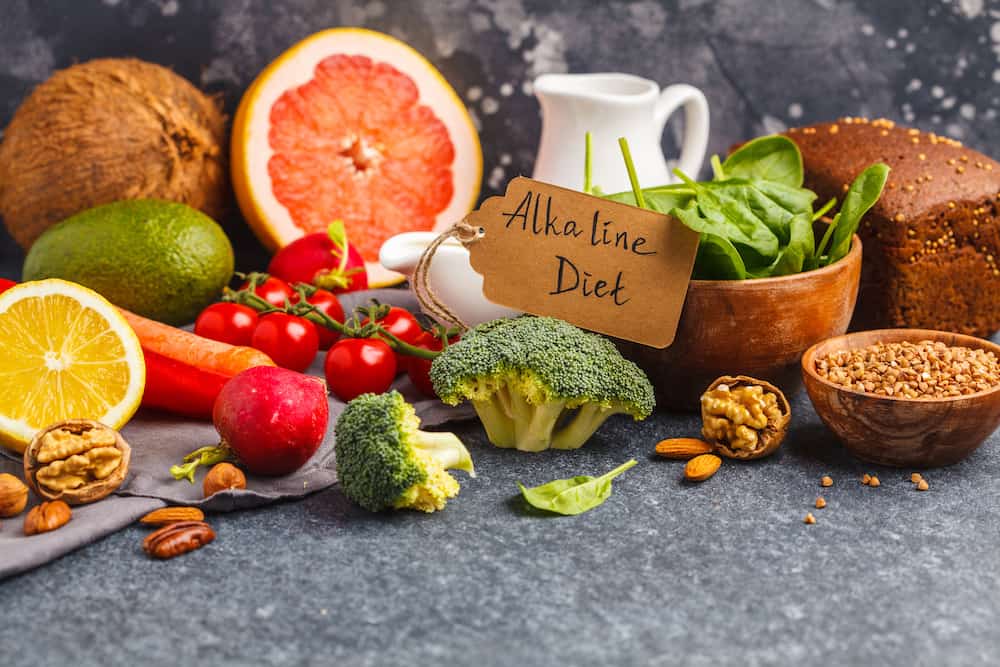An alkaline diet or food is a dietary approach based on the concept of alkalinity and acidity in foods and how they may affect the body’s pH levels. The theory behind the idea suggests that consuming alkaline foods or foods that promote an alkaline environment can be beneficial for health – including reduced risk of certain diseases and improved overall well-being.

Alkaline foods are those that are believed to help maintain or slightly elevate the body’s pH level, making it less acidic. The alkaline diet encourages the consumption of foods that are considered alkaline-forming. The diet promotes whole, unprocessed foods, with an emphasis on plant-based options like fruits and vegetables. These foods are often loaded with vitamins, minerals, fiber, and antioxidants. Processed or canned foods (high in salt, sugar, and unhealthy fats) are discouraged because they are considered acid-forming and potentially detrimental to health.
Adequate hydration is considered important in an alkaline diet. Some proponents suggest drinking alkaline water, which has a higher pH level, as a way to promote alkalinity in the body. Consuming alkaline foods can lead to various health benefits, including improved digestion, better energy levels, weight loss, and reduced risk of osteoporosis and cancer. Here are the top 13 alkaline foods you can add to your diet.
